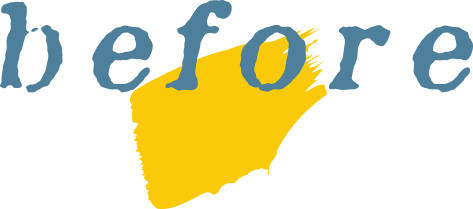Every group, as we know, forms within itself an entity that is greater than the sum of its parts. But how is it possible to exploit this added value without it becoming, as often happens in the company, a dispersive and inefficient movement?
One of the simplest and most direct ways is to develop collective intelligence. According to the definition given by Pierre Levy, CI consists “in valuing all the diversities, knowledge, skills, ideas, experiences, found in a community and organizing them in a creative and productive dialogue“. The strength of the group, in fact.
If applied to company projects and interactions, CI allows you to:
- Carry out complex tasks thanks to the synergies achieved
- Make the best use of each one’s skills, reflections and diversity of aptitudes to achieve a common goal
- Identify creative and innovative solutions to respond to challenges
- Generate collaborations that foster creativity, innovation, motivation and engagement towards work and the company
In fact what happens through the CI is a sort of “contamination of knowledge” within the group which determines a field of intelligence.
Promoting CI is an operation that can be done through dedicated training and workshops, during which the principles are illustrated and the basic “ingredients” are developed. Some of them are:
- Lack of hierarchical order
- Presence of a coordinator
- Creation and respect of common rules
- Multiplication of interactions between members and also outside the group in order to nourish the knowledge of the group itself
- Respect for the expression and experience of each one
- Right to be wrong
- Creativity and curiosity
- Horizontality (vs vertical hierarchy)
- Continuous information sharing
- Mutual trust and open communication
- Achievement of a sense of inclusion (unite in a common purpose, foster a sense of belonging and create a group identity)
- Creation of the so-called psychological safety of team members (the belief of team members that they can take risks and be vulnerable to others without being penalized or even humiliated for making mistakes or exposing themselves with ideas, questions or concerns.
Changing the relationship paradigm and group management through CI means bringing the group entity to express its qualities and potential to the maximum. It’s easy, if you know how to do it.
Altri articoli
Less stress and more energy thanks to Trust Management
Any corporate context is formed in its fundamental essence by the relationships that develop and define it. And every human relationship is based on the presence (or lack) of trust. This is why it is so important to know how to evaluate, support, improve and develop...
Reduce accidents by changing the perception of the concept of safety
Several studies have shown that business accidents are due in 80% of cases to human errors. Starting from this data, it is obvious that to reduce injuries it is more appropriate and effective to start from the analysis of human behavior, to then understand how to...
How to turn others from enemies into allies
According to Alfred Adler, one of the fathers of psychology, almost all our problems derive from interpersonal relationships: if you think about it, all our emotions derive from something that, from our point of view, does not work in relationships with others. In the...
How to break free from competitiveness with colleagues
We have all perceived, at least once in our life (and perhaps much more than one) a sense of competitiveness; in reality, if you pay attention to it, you will find that competitiveness affects us in almost all life situations, from social ones, in which we want to...
Enhance intuition in the company thanks to the Management Constellations
What do Barak Obama, Albert Einstein and Elon Musk have in common? It goes without saying that they are characters of great intelligence, but what really unites them is their great capacity for intuition. Why is intuition important in the company? Intuition is...
How to write great emails
We now manage them automatically, every day, constantly; they are part of our life, of our routine, they determine our way of working, our relationships, our communication. Yet we don't give them so much importance, sometimes we respond automatically and open them...
Courage in the company: the key to your success
"Having courage" in your business environment means much more than "throwing yourself" or "taking risks", having courage is a concept that has a profound value, it has to do with our identity and the meaning it has for we our life in terms of personal fulfillment. An...
Mindfulness as a resource to work better and with less effort
In recent years you have often heard about mindfulness and the benefits it brings, both personally and professionally, for those who practice it consistently. But exactly why can it be beneficial for our well-being in the workplace? What concrete benefits can it bring...
Developing well-being in the company through emotional intelligence
Everyone talks about IQ, but there is another type of intelligence, equally important because of its enormous impact on our well-being and our decisions: emotional intelligence.First theorized in 1990 by Daniel Goleman, IE can make a difference in the workplace,...
Stop to go faster: how smart breaks can boost productivity
Let's face it: in 2022 the idea that to get the most we must squeeze as much as possible for eight consecutive hours (or more) is no longer credible.Numerous studies confirm that an employee engaged for 8 consecutive hours will see his performance curve drop...











